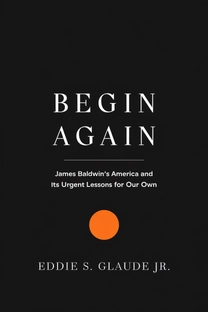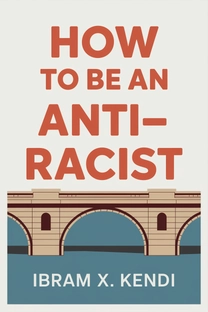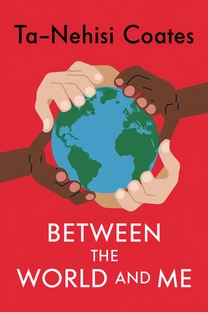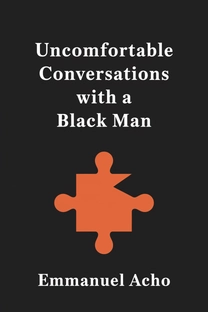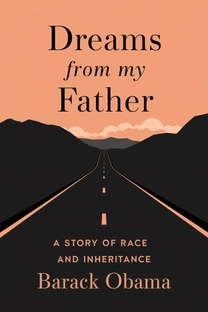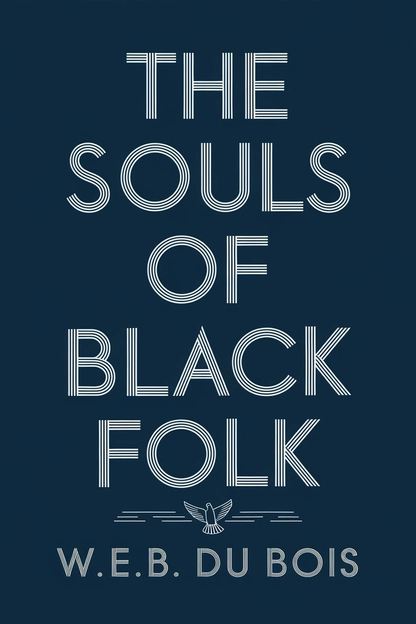
The Souls of Black Folk
by W.E.B. Du Bois
Brief overview
This book offers a powerful exploration of race and identity in post-emancipation America. Through personal anecdotes and historical narratives, it examines the unique struggle of Black Americans striving to reconcile their dual consciousness within a segregated society. Readers can expect a revealing portrait of the social, political, and psychological realities faced by African Americans in the early 20th century.
Introduction
Stepping into “The Souls of Black Folk,” readers find W.E.B. Du Bois standing at the crossroads of being both an American and a man of African descent. Immediately, he lays out the concept of the “Veil,” a metaphor for the invisible barrier separating Black and white Americans. This Veil is felt in everyday encounters—schools, public spaces, even in the hush of polite conversation—and it signals that Black people move through a world not fully their own. Du Bois also reveals the deep sadness and anger beneath the question he hears so often: “What does it feel like to be a problem?” In explaining this experience, he recounts boyhood moments of rejection that brought a sharp, painful awareness of difference. Through these personal and collective perspectives, his writing points to the emotional and psychological complexities of living a life behind the Veil. But this introduction offers more than an extended lament. It beckons us to engage with a people’s dreams, disappointments, and ever-present hope. Du Bois wishes readers to stand outside their own assumptions and peer compassionately into the hearts of those who are often labeled simply by the color of their skin.
By situating the reader alongside his vivid personal reflections, Du Bois sets a tone that is both scholarly and intimate. He shows that beyond the data and politics, there is a human soul searching for self-realization in a society that repeatedly assigns lesser value to that soul.
This opening effort underscores that racial strife entails more than institutional laws; it is also a spiritual and existential crisis. As he invites us on this journey, Du Bois urges his audience to confront not just historical injustices but also the persistent question of what equality and true freedom should look like for all Americans.
The Legacy of Emancipation
In the aftermath of the Civil War, four million Black men and women were released from bondage, yet found themselves in a world ill-prepared to integrate them as full citizens. Du Bois illustrates how mere freedom papers did not automatically grant full participation in democracy. Former slaves lacked land, education, and political capital. Many had to negotiate labor contracts under exploitative conditions, creating patterns of debt and dependence that echoed slavery. In describing the Freedmen’s Bureau—a short-lived but vital institution—Du Bois acknowledges its breakthroughs, such as the establishment of schools and basic legal protections. Yet he laments that bureaucratic failings and insufficient funding kept it from fully empowering formerly enslaved families. The fragile attempts at Reconstruction soon gave way to entrenched prejudice, with white southerners unwilling to extend genuine equality to their former slaves.
Despite these barriers, the post-emancipation era sparked a new sense of autonomy. Freedmen pursued literacy with fervor, recognizing education as both a practical tool and a symbol of their aspirations. This is where Du Bois pinpoints a defining shift in the African American experience: a psychological movement from enforced subservience to a determination to realize one’s inherent humanity.
Nevertheless, the joy of anticipated freedom collided with ongoing realities of violence and disenfranchisement. For Du Bois, the real question was how to build lasting social foundations in place of a brutal slave system. He saw that while the legal apparatus of slavery was dismantled, the underlying attitudes remained frozen in place, making Emancipation an incomplete victory.
What is The Souls of Black Folk about?
"The Souls of Black Folk" by W.E.B. Du Bois offers an incisive examination of race and identity in a post-emancipation America, where the duality of being both Black and American created unique challenges. Through essays combining personal anecdotes with historical analysis, Du Bois illuminates the reality of African American life beyond legal freedom. He introduces essential themes like the "Veil"—a metaphor for the invisible barrier of racial separation—and "double consciousness"—the internal struggle of Black Americans seeing themselves through both their own and white society's prejudiced lens.
This influential work is more than a historical account; it’s a powerful narrative that has shaped racial dialogues for generations. Du Bois critically assesses the societal structures that hinder Black progress, advocating for education and self-realization within a system that often denigrates these efforts. A foundational text for understanding systemic racial dynamics, "The Souls of Black Folk" continues to resonate with current conversations on equality and justice, making it a must-read for those seeking deeper insights into America's complex history with race.
Review of The Souls of Black Folk
W.E.B. Du Bois's seminal work, "The Souls of Black Folk," stands out for its ability to intertwine scholarly analysis with personal narrative. Du Bois's exploration of "the Veil" and "double consciousness" isn’t merely abstract—it is rooted in lived experience, making these concepts palpable and immediate. What makes this book exceptional is its blend of historical context and philosophical inquiry, backed by Du Bois's own experiences as a Black man in 20th-century America.
The book’s key strengths lie in its candid assessment of post-emancipation struggles faced by African Americans. With a graceful, yet urgent tone, Du Bois highlights how societal neglect and denial of basic human rights continued to tarnish the American dream for Black communities. His prose, though steeped in intellectual rigor, remains accessible—guiding readers through complex ideas without sacrificing clarity.
This work is especially relevant to educators, policymakers, and anyone interested in understanding racial injustice as it persists today. "The Souls of Black Folk" calls for a collective rethink of how historical events shape racial narratives, inviting readers to embrace a broader, more empathetic perspective. Du Bois extends beyond critique to offer hope, suggesting that truth and equity can guide societies beyond racial divides. Highly recommended for anyone looking to engage deeply with the roots and realities of racial inequality.
Who should read The Souls of Black Folk?
- Academics and historians interested in the evolution of racial theory and narratives.
- Social justice advocates looking for historical context to contemporary racial issues.
- Educators and students in African American studies programs wanting foundational material.
- Leaders and policymakers seeking a deeper understanding of systemic racism.
- General readers curious about how historical narratives continue to shape current societal structures.
About the author
Book summaries like The Souls of Black Folk
Why readers love Mindleap
10-Minute Book Insights
Get the core ideas from the world's best books in just 10 minutes of reading or listening.
Curated For You
Discover your next favorite book with personalized recommendations based on your interests.
AI Book ExpertNew
Chat with our AI to help find the best book for you and your goals.
Reviews of MindLeap
Love how I can get the key ideas from books in just 15 minutes! Perfect for my busy schedule and helps me decide which books to read in full.
Alex R.
The summaries are incredibly well-written and the audio feature is perfect for my commute. Such a time-saver!
Jessica M.
Great app for personal growth. The insights are clear and actionable, and I love how they capture the essence of each book.
Chris P.
The app is beautifully designed and the summaries are top-notch. Definitely worth every penny!
Sarah K.


